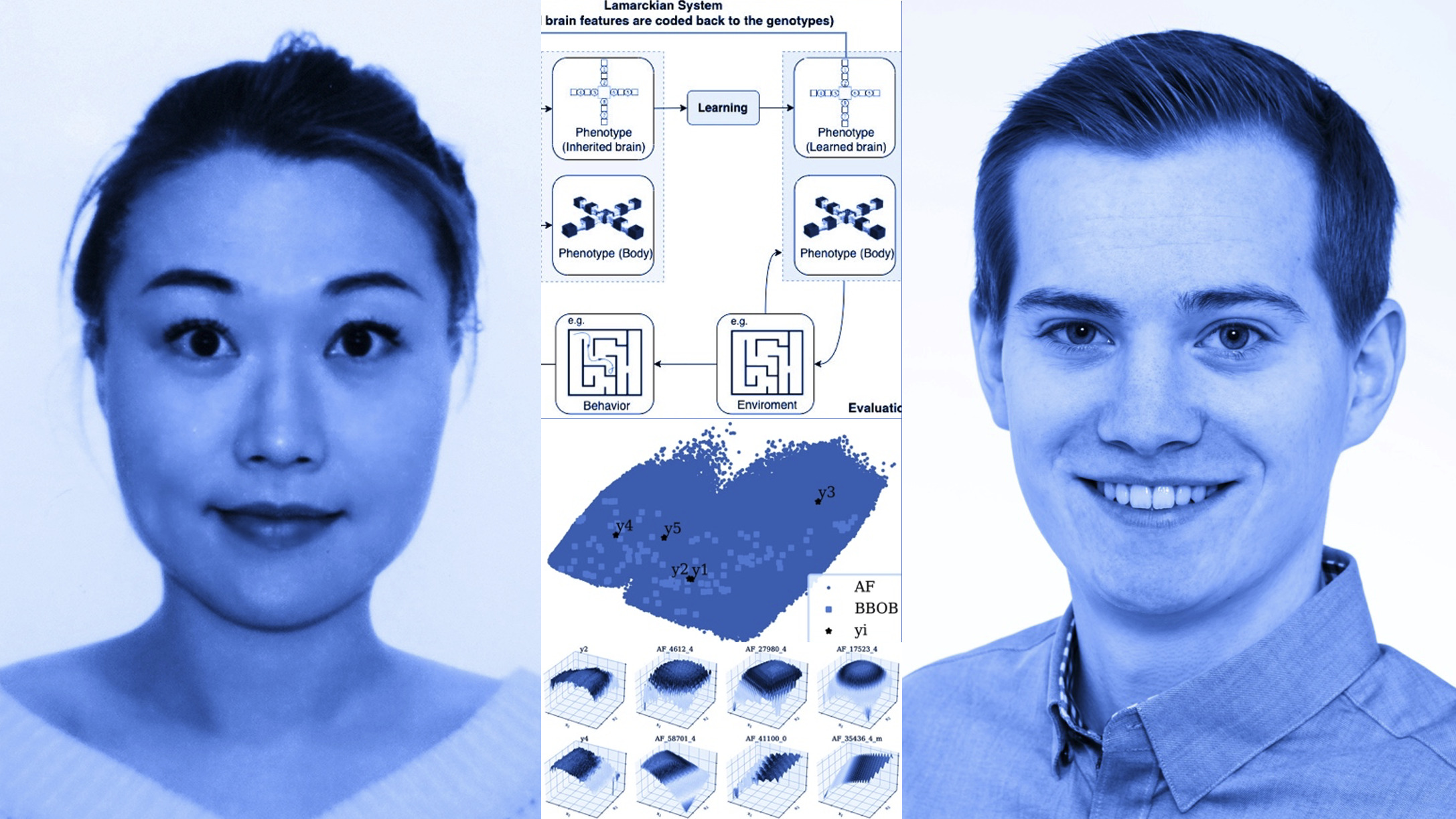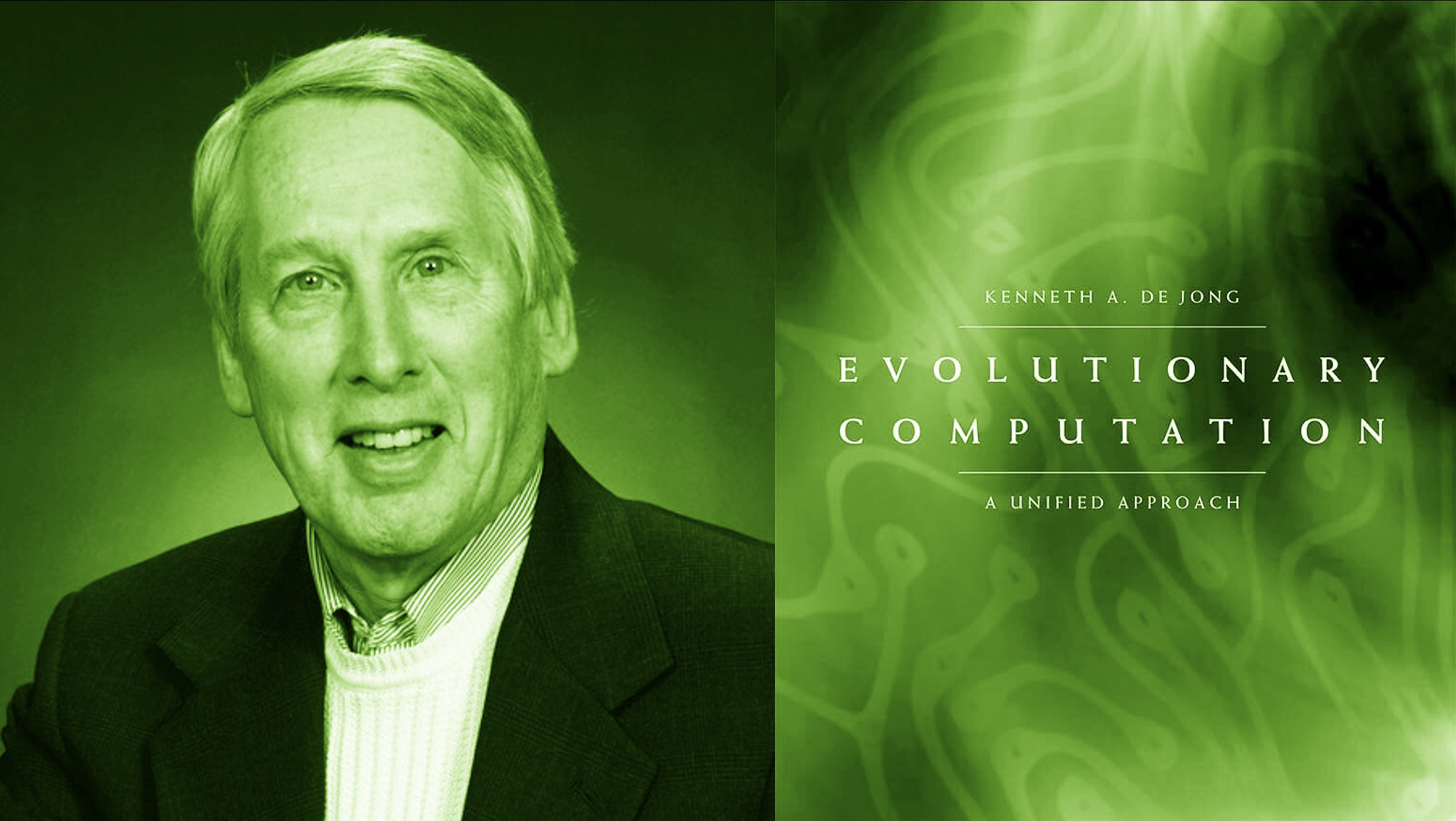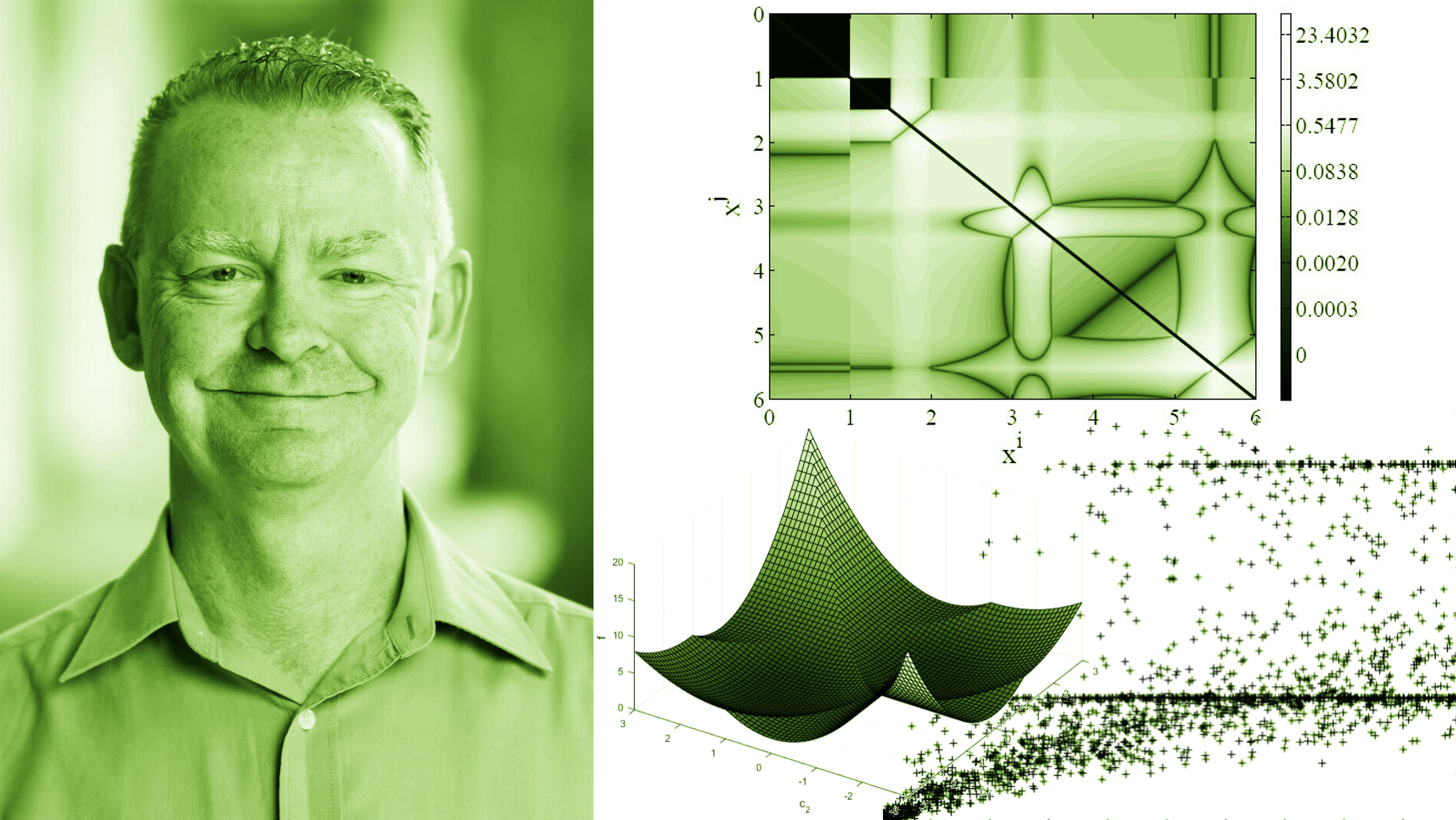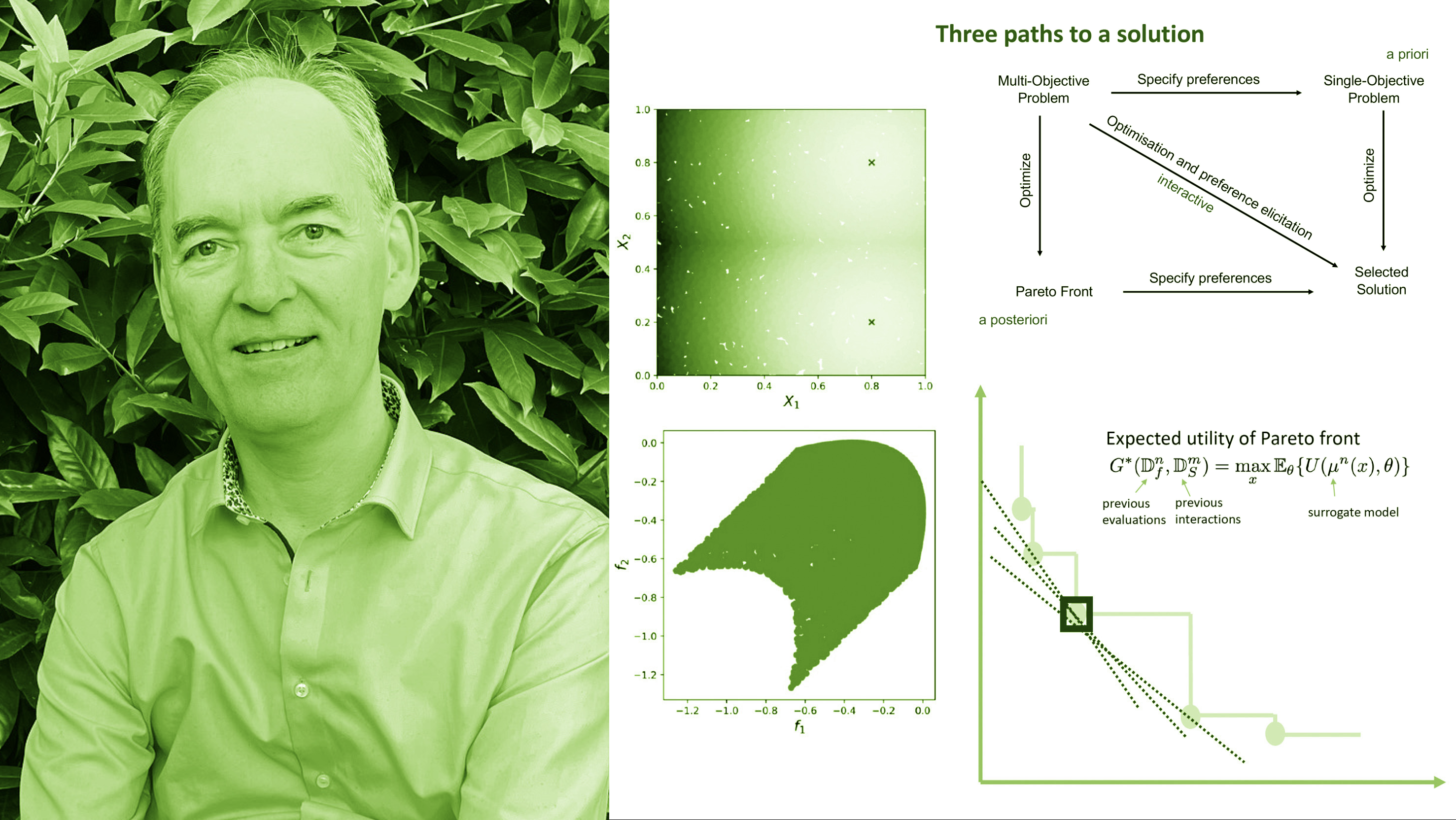The fourteenth lecture takes place on the 10th of January 2024 at 4:30 PM (CET), virtually.
The zoom link to attend the lecture is: https://universiteitleiden.zoom.us/j/61662758476?pwd=K2JnanFRR1FFWkFJSXBjNjRTL2h1dz09
The lecture features Ph.D. candidates Jie Luo and Andre Thomaser.
Talk 1: Enhancing Robot Evolution through Lamarckian Principles
Jie Luo, VU Amsterdam
Evolutionary robot systems offer two principal advantages: an advanced way of developing robots through evolutionary optimization and a special research platform to conduct what-if experiments regarding questions about evolution. Our study sits at the intersection of these. We investigate the question “What if the 18th-century biologist Lamarck was not completely wrong and individual traits learned during a lifetime could be passed on to offspring through inheritance?” We research this issue through simulations with an evolutionary robot framework where morphologies (bodies) and controllers (brains) of robots are evolvable and robots also can improve their controllers through learning during their lifetime. Within this framework, we compare a Lamarckian system, where learned bits of the brain are inheritable, with a Darwinian system, where they are not. Analyzing simulations based on these systems, we obtain new insights about Lamarckian evolution dynamics and the interaction between evolution and learning. Specifically, we show that Lamarckism amplifies the emergence of ‘morphological intelligence’, the ability of a given robot body to acquire a good brain by learning, and identify the source of this success: newborn robots have a higher fitness because their inherited brains match their bodies better than those in a Darwinian system.
Talk 2: Vehicle Dynamics in Practice: Selection of the best CMA-ES Configuration
Andre Thomaser, Leiden University/BMW
A method utilizing artificial functions for efficient algorithm selection in costly black-box optimization challenges is introduced. Exploratory Landscape Analysis ensures the functions’ similarity to real-world problems. Parameter tuning on these artificial function of the Covariance Matrix Adaptation Evolution Strategy can yield marked performance gains in vehicle dynamics scenarios. The method is tested on a comprehensive simulation dataset offering a reproducible benchmark.
 JoLEA
JoLEA



